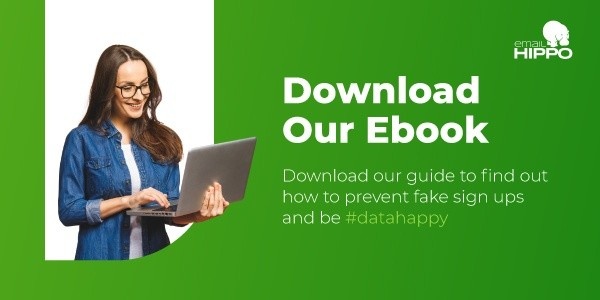If you operate a business online, there are various types of fraudulent activity to be aware of. The most extreme of these include cyberbot attacks, which operate on a massive scale and can access millions of online accounts.
However, there are some smaller-scale types of fraud known as ‘friendly fire’, the name suggesting that fraud has been so normalised that low-level cyber crimes are often ignored.
No matter the scale, fraud is a non-discriminatory, international problem that is notoriously difficult to beat. From hacked email addresses to large-scale cyber attacks, dealing with online fraud can be a monumental task for any business.
Read on for expert advice on handling fraudulent activity around email accounts.
How to tell if a customer's email address has been hacked
Hackers use many methods to target email accounts. One of the most common ways is through hacking company databases and selling the stolen information on the dark web or hacker forums.
Hackers typically look for emails that pertain to financial transactions or investments, then impersonate the email account owner in a bid to steal money, usually setting up a bank account in the name of the victim so that they can divert funds directly to that account.
Signs that a customer’s email account have been compromised include:
- Their password has been changed without their permission
- They are receiving emails from senders they don’t recognise
- Different IP addresses are showing on their log
- People may be receiving spam emails from the affected account
Spotting fake email signups and protecting your customers against them
Whenever you gather data online, for example from a form field or survey, there is a risk that you may receive some inaccurate information from spambots, pranksters or people reluctant to provide their contact details. This can lead to bad actors trying to penetrate the system.
Read our blog post to find out how to spot fake email signups and protect your customers against bad data.
Can fraudsters get around email authentication checks?
It is highly advisable to enable two-factor authentication as an extra layer of security against hackers, however there is still cause for caution even with this measure in place.
Unfortunately, hackers are sometimes able to hack two-factor authentication checks using a particular type of phishing.
Read our blog to find out more about how fraudsters get around email authentication checks and how to be extra vigilant when it comes to email security.
The problem with disposable email addresses
A disposable email address is an email address that lasts for a certain period of time; this could be anything from a few minutes to a few weeks.
They are used by people who want to conceal their actual email address or stay anonymous online. Disposable email addresses are not always used to commit fraudulent activity; many genuine users just want to control their communication without risking their data being shared.
However, there is a strong link between disposable email addresses and online fraud, and they can enable criminal activity such as credit card chargebacks, identity fraud and abusive behaviour.
To find out more about how disposable email accounts could harm your business and how to spot them, check out our blog.
How accurate is your email verification solution?
Email verification is a business software tool that checks for errors in email addresses in lists. Verification software also filters email addresses as they are entered onto systems, using an email verification API.
When used correctly, email verification is a powerful tool that can inform your marketing decisions and support your business success.
Our CORE service adds value to your data by checking the good and bad email addresses in your list, saving you time and improving your marketing results.
But how do you know if your email verification solution is accurate? Read our blog to find out.
Prevent fake sign ups: download our ebook
Download our guide to find out why fake sign ups are problematic and why email address intelligence should be your first line of defence against them.






